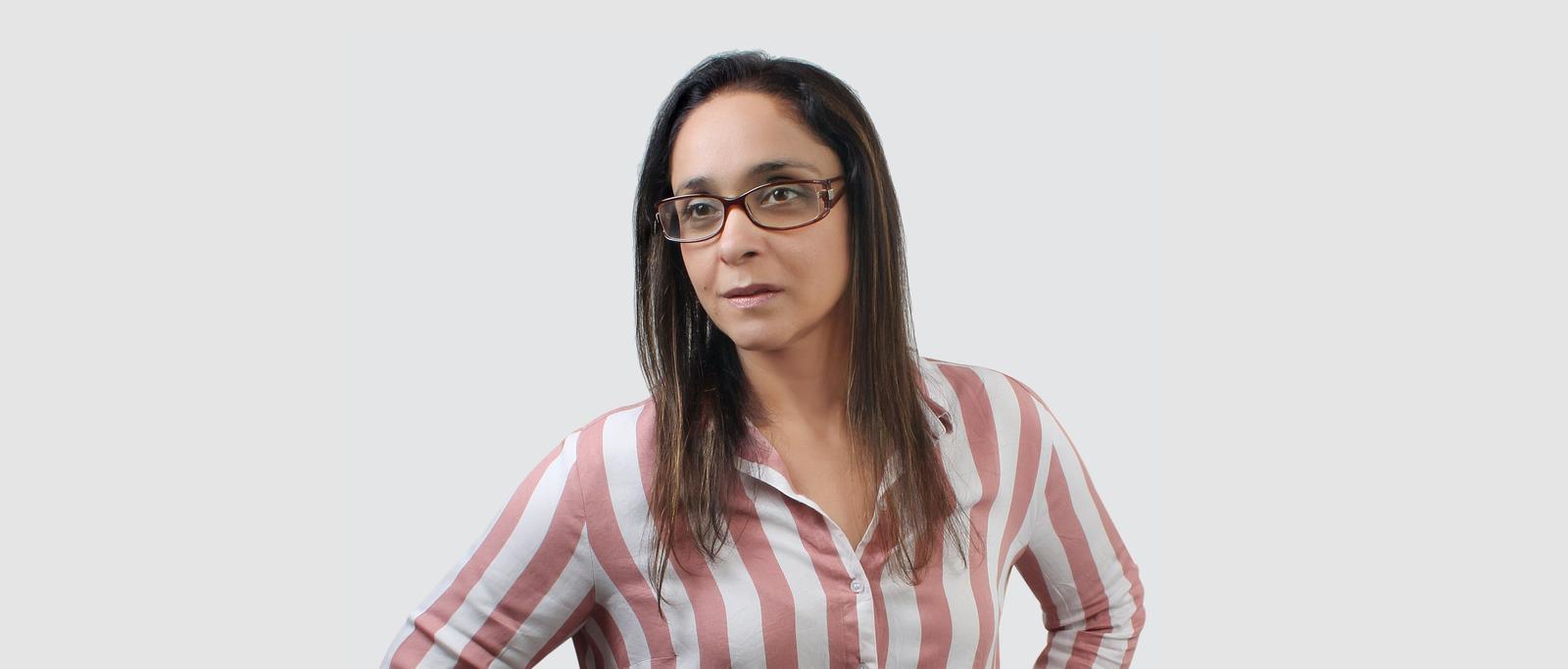
Ruchi Batra
Design Director,
IBM iX
↓
I am an experience designer and strategist, a researcher, a dreamer, a mother of twin boys, a home maker, a food lover, an avid reader, and an aspiring author. I am always looking for unique connections between multiple disciplines and topics such as business strategy and modeling, human-centered design, economics, ethnography, science fiction, strategic foresight, data science, behavioral science, and psychological principles that shape human behavior. I enjoy immersing myself in these disciplines to concoct new ideas for next-generation businesses, products, services, and user experiences that solve for a human need, enable business growth, and help shape a better future.
My path into the design profession was more eclectic and multifaceted than a pragmatic one. It’s been about two decades in this industry and when I look back it makes me feel like, “Wow! What a ride!” I never thought about my career like a series of linear decisions but more about learning and exploring new possibilities, going deeper and making new connections, establishing my own rituals to sustain deep thinking, and of course working with and learning from mentors, which truly helped me carve my own path.
Early in my college days, I did have a creative streak and would spend hours sketching logos and posters for my father’s company and wondered if this could be a career choice. And that’s when I started off with a diploma course in design and my first internship with Rediff.com. I eventually moved on to delivering design projects and sharpening my craft with the best-in-class design teams at Sapient. As my career progressed, I evolved from an individual contributor into design leadership role at Accenture Digital, building and leading design teams across different locations, setting up foundational practices, and providing design consulting services to key clients. I had a really amazing team and got experience leading UX designers, graphic designers, user researchers, design systems engineers, and design program managers.
With IBM, my career has further evolved into becoming a strategic design partner for clients, helping their businesses leverage design and design thinking for growth and innovation. In my mind, the journey has just started, and I’m looking forward to more enriching experiences.
In my experience so far, the hardest career stage for a woman is to make a leap from an individual contributor into becoming a leader, to be seen and be open to feel vulnerable. Being a daughter, a mother, and a wife myself, I feel women are always thinking about, “Do it all, do it perfectly, and never let them see you struggle” — and that’s what holds us back most of the time. The quest for perfection and nothing less than that slows us down more than it speeds us up.
I personally learned a lot working with women leaders in my entire career journey on making balanced choices. Be open to asking for help and overcoming biases as well as self-depleting voices in your head saying, “I am never enough!” We fail to take credit of contributions and demonstrate male traits to be acceptable, which makes it even more difficult to establish our own authentic voice.
As a side note, I am a big fan of Brene Brown’s work around vulnerability and shame. I recommend reading her books “Dare to Lead” and “Braving the Wilderness” to embrace daring greatly, which is not about winning or losing; it’s about courage and standing up for yourself.
I believe each woman is unique and should not be fearful of not fitting in, but rather celebrate the strengths each one of us brings forward. I don’t think there is a need to reassure women that they can be mother and professional since men are equally responsible for doing so, too.
Build new norms of working and interacting with your universe through empathy and empowering each other. Women have distinct superpowers of being sensitive, caring yet passionate, and driven—which are true game changers.
Believe in advancing the women around you, and we all move forward.
Speak up rather than staying silent, and never shy away from conveying your own need to feel included and acknowledged for your efforts.
I don’t think being a man would make much of a difference in how my career is today. I have had the equal opportunities and great support from the people I worked with that I can’t even imagine this workplace gender divide anymore. In fact, I often feel women are able to leverage their superpowers of perseverance and empathy which actually makes an organization a better place to work and thereby elevating their male counterparts, too. The more we emphasize this gap that needs to be filled, the wider it may become. So, the design question here is (can’t resist), “How might we blur the gender divide at workplace and come together as inclusive, high-performing team?”
Don’t be afraid of being vulnerable as it’s about being brave, acting courageously, and leaving your ego at the door. Be aware of unconscious biases and interact with one another in a way that strengthens us. Avoid traps like self-depleting narratives. Own your career and own your voice; don’t wait for someone to tap on your shoulder and present an opportunity. Create opportunities you want to see yourself in. Use your fear as your motivation, and never say no to any challenges.